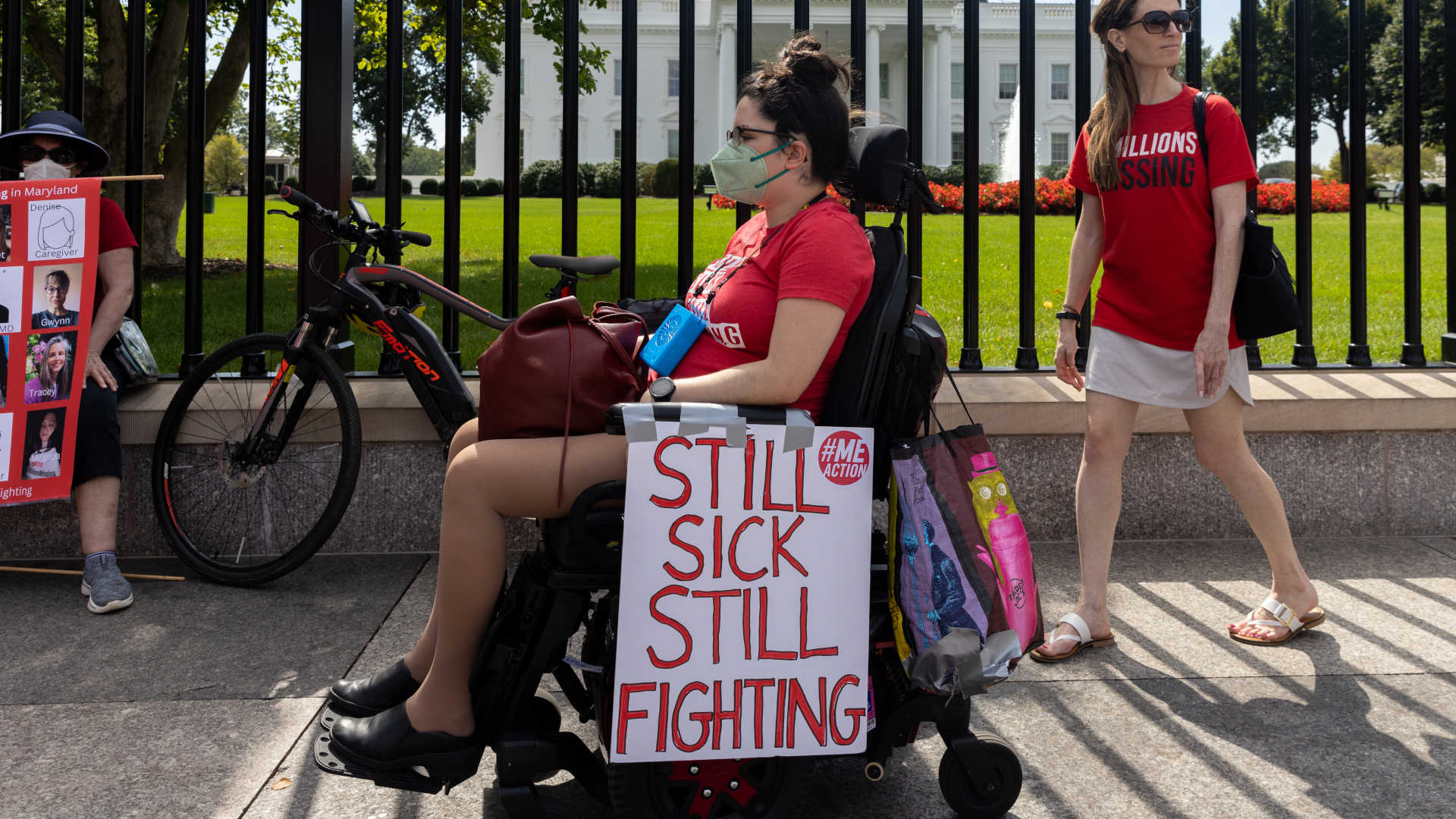Case definitions are crucial in science, as they allow scientists to be sure they’re studying people with an illness versus those without the illness. Without an accurate case definition — or if there are multiple contrasting ones — it’s difficult to estimate prevalence rates, identify biomarkers, and discover effective treatments for a condition. Unfortunately, conceptual confusion has led to many different case definitions for long Covid, the post-viral illness experienced by some people after a SARS-CoV-2 infection. The failure to reach consensus on a single set of defining criteria for long Covid continues to have significant negative ramifications for patients and researchers.
Such complications have occurred for another illness triggered by viral infection known as myalgic encephalomyelitis/chronic fatigue syndrome, or ME/CFS. Multiple case definitions and a constellation of varied symptoms among ME/CFS patients has made identifying biomarkers difficult, which has caused some doctors and researchers to inaccurately attribute the condition to solely psychiatric reasons. Similarly, the failure of scientists to settle on one case definition for long Covid potentially incurs risks of stigma for people with the illness.
Collecting data on symptoms is a primary way of constructing case definitions, but surveys designed for long Covid have been inadequate. This is because the vast majority of such surveys have focused on just assessing whether a symptom occurs — asking respondents to answer either “yes” or “no.” But these questions tell researchers little about critical aspects of these symptoms, such as how frequently they occur (a little of the time to all of the time) or how serious they are (from mild to very severe). Because numerous somatic symptoms, such as fatigue and pain, can be found at low levels in healthy people or in people with other conditions, assessing the yes-versus-no occurrence of a symptom does not inherently distinguish people who have long Covid from those who don’t.
Here is an example: If a respondent simply says yes to having migraine headaches since being infected with SARS-CoV-2, this tells us little about how frequent or severe the migraines are. If a person mentions having migraines, but the frequency is rare, it is unlikely to be a symptom that distinguishes a person with a post-infectious illness from someone who has recovered.
Collecting data on symptoms is a primary way of constructing case definitions, but surveys designed for long Covid have been inadequate.
In 2023, the National Institutes of Health’s RECOVER consortium developed an influential long Covid case definition using a survey of nearly 10,000 participants. These researchers found that a yes-or-no question regarding “loss of or change in smell or taste” was the best discriminator between those infected and those not infected with SARS-CoV-2. This symptom also accounted for two-thirds of the score determining whether a person would be diagnosed with long Covid. Among those who were ultimately classified as positive for long Covid, 41 percent had this symptom.
In contrast, when questions about frequency and severity of symptoms are included, the results are very different. A study I conducted with a colleague at DePaul University’s Center for Community Research found that only 12.6 percent of those with long Covid had lost or experienced changes in smell or taste at least half of the time and with at least moderate severity. In other words, two-thirds of RECOVER’s case definition, which has been widely cited, relied on a relatively infrequent and less severe long Covid symptom. Establishing a case definition with an emphasis on one such symptom neglects the possible importance and impact of other critical long Covid symptoms.
It’s worth examining how symptom questions were asked for ME/CFS, another area of post-viral research. For many years, ME/CFS researchers only assessed the occurrence of symptoms. But in the mid-1990s, scientists realized that the somatic symptoms in the criteria for ME/CFS were very common in the general population, so only measuring whether or not a symptom occurred was too imprecise. Furthermore, one of the most prevalent mental health disorders, major depressive disorder, could not be differentiated from ME/CFS using just measures of occurrence. However, when measures of frequency and severity were introduced, it was possible to differentiate ME/CFS from major depressive disorder with 100 percent accuracy. As some continue to believe that long Covid is a psychologically-based illness, assessing symptoms with frequency and severity ratings in the case definition is essential to reduce possible stigma.
Another conceptual mistake in constructing a long Covid case definition is that the measurement of symptoms and of functionality become blurred. For example, the World Health Organization defines the post-Covid-19 condition’s symptoms as those “which generally have an impact on everyday functioning.” The U.S. Department of Health and Human Services defines long Covid as “multisystemic,” and that it “may present with a relapsing–remitting pattern and progression or worsen over time, with the possibility of severe and life-threatening events even months or years after infection.” Measuring symptoms and assessing the functional limitations of the illness are independent constructs, and a pre-determined reduction in functioning should not be required to have long Covid. Some patients have multiple frequent and severe symptoms but minimal limitations in their daily living, but they should not be denied a long Covid diagnosis. Their symptoms might be annoying and challenging to deal with, so despite not having substantial reductions in functioning, they still have long Covid.
Other physical illnesses do not require patients to prove impairments in functioning to be diagnosed. Mental disorders, on the other hand, often require a substantial reduction in functioning in their case definitions. For ME/CFS, a co-mingling of symptoms and functionality has unintentionally contributed to delegitimizing their symptoms: Case definitions for ME/CFS require patients to have a substantial reduction in functioning, so just having symptoms is not in itself enough to receive a diagnosis. If this occurs within long Covid diagnostic efforts, it could create further conceptual confusion for the case definition and potential stigma for patients.
The failure to develop a consensus on a long Covid case definition has and continues to create problems. Just like a house of cards, if the scientific foundation is shaky, all the layers constructed above are vulnerable to collapse. Those with persisting symptoms of SARS-CoV-2 need to be adequately described, along with their functional limitations. Recognizing and dealing with these conceptual and methodologic issues could help guide the construction of a valid, non-stigmatizing, case definition for long Covid.
Leonard A. Jason is director of the Center for Community Research at DePaul University and co-editor of the book “Understanding the Behavioral and Medical Impact of Long COVID: An Empirical Guide to Assessment and Treatment of Post-Acute Sequelae of SARS CoV-2 Infection.” He serves as ME/CFS expert for the research initiative ILLInet RECOVER.











